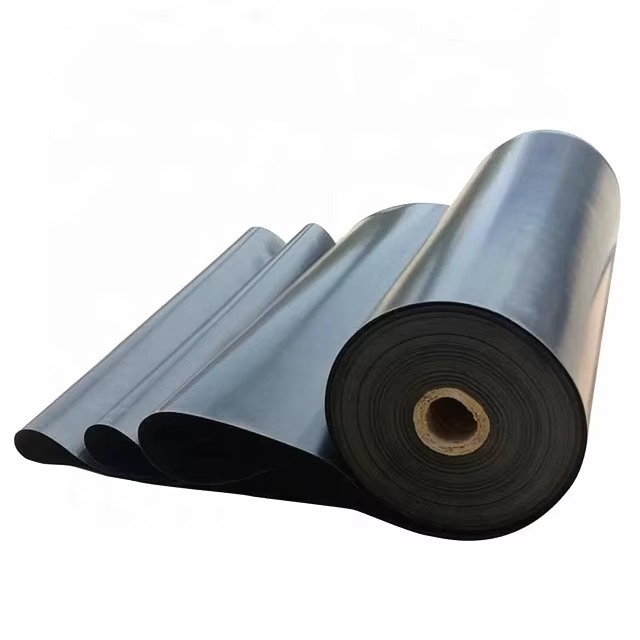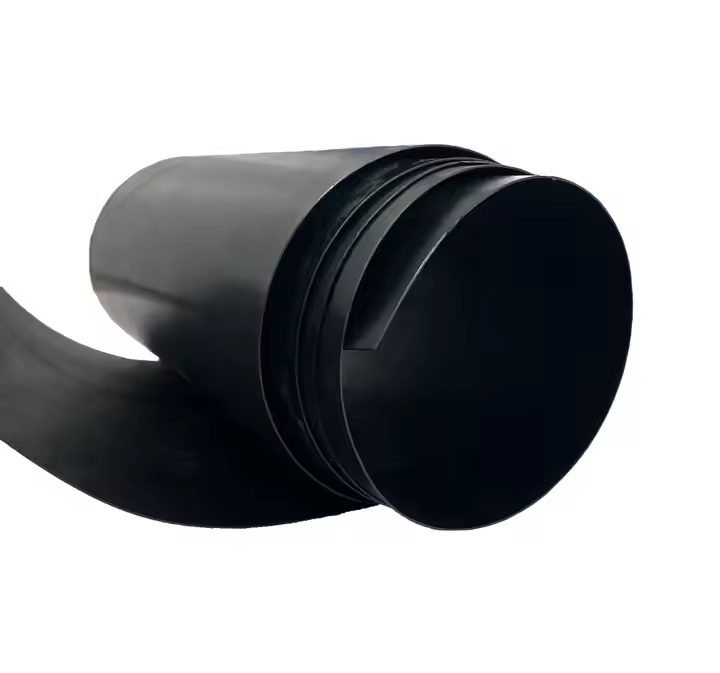A geomembrane is a synthetic waterproof barrier made from flexible materials, primarily used in civil engineering and environmental applications. It plays a vital role in projects that require containment or separation, such as waste management, water treatment, and mining. These impermeable membranes are designed to prevent the passage of liquids or gases, making them a key component in ensuring the protection of soil and groundwater. The importance of geomembranes in modern infrastructure cannot be overstated, as they help mitigate the environmental risks associated with numerous industrial activities.

Types of Geomembranes
There are various types of geomembranes available in the market, with materials ranging from high-density polyethylene (HDPE) to linear low-density polyethylene (LLDPE), and more. Among these options, the geomembrana HDPE 1 mm stands out due to its excellent durability and resistance to a wide range of chemicals and environmental factors. This particular thickness of HDPE geomembrane provides optimal strength, making it a preferred choice for large-scale projects that demand long-term performance and reliability.
One of the primary factors that determine the effectiveness of a geomembrane is the material used in its construction. The material directly influences the geomembrane’s resistance to various environmental factors, including UV radiation, temperature changes, and exposure to harsh chemicals. As a result, geomembranes made from materials like HDPE are highly valued for their strength and ability to withstand challenging conditions.
Advantages of Using Geomembrane in Construction and Environmental Projects
Geomembranes are known for their outstanding versatility, and their uses are widespread in a variety of industries. In landfills, they are used as barriers to prevent the leakage of harmful substances into the surrounding environment. Similarly, in mining operations, geomembranes help contain toxic waste and chemicals, safeguarding the nearby ecosystems.
For water containment, geomembranes offer an efficient solution. Reservoirs, ponds, and canals can be lined with geomembranes to ensure that the water remains contained without any leakage into the surrounding soil. These membranes are particularly useful in areas where natural barriers are not adequate, providing an extra layer of protection to maintain water levels.
Another notable use of geomembranes is in aquaculture and agriculture. In these industries, geomembranes are utilized to construct ponds for fish farming or agricultural irrigation systems. These applications benefit from geomembranes’ ability to maintain the integrity of water systems while preventing contamination.
Choosing the Best Geomembrane for Your Project
When selecting a geomembrane for a specific project, it is crucial to consider various factors, such as the material, thickness, and durability. The best geomembrane for a particular application depends on the environmental conditions and the specific requirements of the project. For instance, geomembranas HDPE 1 mm provide exceptional protection against mechanical damage and resist punctures, making them ideal for projects in more challenging environments.
In addition to physical properties, it is important to evaluate the long-term sustainability of the geomembrane. The best geomembrane options are those that offer both immediate performance and long-lasting durability. When choosing a geomembrane, make sure to assess how well it will perform over time, particularly in harsh conditions such as extreme temperatures or exposure to chemicals.
As a manufacturer of geomembranes, we pride ourselves on providing high-quality products that meet the demands of various industries. Our factory produces geomembranes that meet international standards for strength, durability, and resistance to environmental factors. Whether you’re looking for geomembranas HDPE 1 mm or another type of geomembrane, our products are designed to offer reliable solutions for a wide range of applications.
Conclusion
In conclusion, geomembranes play a crucial role in environmental protection and construction. They are integral to projects that require waterproof barriers, containment, or separation. From landfills to aquaculture, the versatile applications of geomembranes make them an essential component in various industries. When choosing the best geomembrane for your project, it is important to consider factors like material, thickness, and resistance to harsh conditions. At our factory, we offer a range of geomembrane products, including geomembranas HDPE 1 mm, designed to meet the high standards required for long-term, effective performance. Geomembranes provide not only an essential environmental protection tool but also a cost-effective solution for a wide range of applications.
